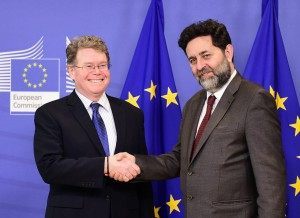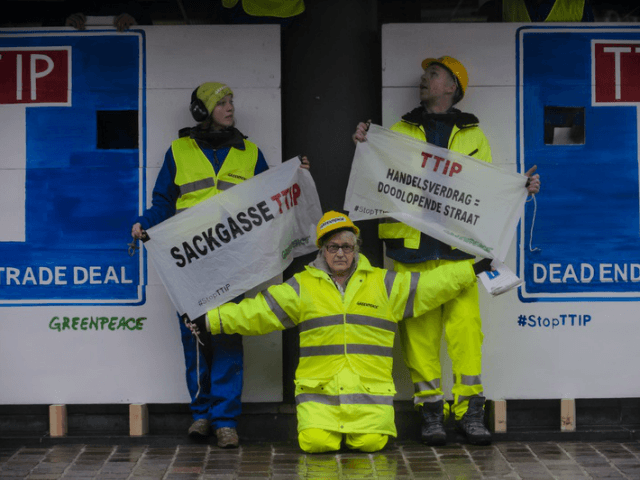Confirming recent comments from Brussels sources, the European Commissioner in charge of the secretive Transatlantic Trade and Investment Partnership (TTIP) deal has said the U.S. and European Union (EU) still aim to conclude the agreement this year.
Although a White House spokesman recently suggested TTIP negotiations may outlive President Obama’s tenure in the White House — lasting beyond January 2017 — European Trade Commissioner Cecilia Malmström has told Austrian newspaper Der Standard negotiations should conclude this year.
In saying so, Ms. Malmström confirmed the comments of an EU source who last week conceded there are “difficulties, in light of the many issues that still need to be solved”, but believed it “is possible to conclude the negotiations at the political level with the current administration”.
Ms. Malmström was in Austria — which sits alongside Germany as a country with large numbers of TTIP critics — meeting with the Finance Minister and Members of Parliament. She admitted that a lack of clarity as to the content of TTIP has marred the process to date, leading to what she said was a misunderstanding of the proposed deal.
She said that some critics reject the idea of free trade outright, but regarding others her goal is “to take the fears of people seriously, to persuade them with facts.”

TTIP chief negotiators EU’s Ignacio Garcia Bercero (R) and U.S. Dan Mullaney meet at the European Commission on February 22, 2016 in Brussels.
Meanwhile, back in Brussels lead negotiators Dan Mullaney (U.S.) and Ignacio Garcia Bercero (EU) were meeting for a further a five day-long round of talks.
Matters did not proceed as smoothly as they might have hoped, as Greenpeace’s environmental activists got there first and chained themselves to the entrances of the conference centre where the parties were due to meet (pictured above). Some climbed the building to unveil a banner depicting a ‘dead-end’ road sign reading: “TTIP: dead end trade deal”.
The 30 activists from seven countries claim TTIP is “a threat for democracy, environmental protection, health standards and working conditions” and called for an immediate end to negotiations. Greenpeace TTIP campaigner Susan Jehoram Cohen declared:
“This trade deal is not about trade. It’s about the transfer of power from people to big business.”
One of the most controversial elements of the proposed deal is the Investment Court System (ICS), a quasi-court jurisdiction available to foreign investors to challenge democratic states. It is thought the ICS is intended to allow such investors to defend their private economic interests by challenging national rules and laws. Greenpeace EU legal counsel Andrea Carta added:
“The Commission’s plan for a special court to protect corporate profits is a threat for democracy and the rule of law. It discriminates against local businesses and threatens the right of governments to adopt laws that are in the public interest.
“Multinational corporations are not above the law. The same rules should apply to them as to everyone else.”
As the EU/U.S. talks in Brussels intensify, the focus will inevitably turn to what American presidential candidates say about their intentions regarding the agreement. The euObserver reports a source at the European Commission claiming TTIP has a potentially higher degree of bipartisan support than other free trade deals, saying:
“Many congressional Democrats will tell you they have never voted for a free trade agreement, but could consider voting for TTIP because Europe has higher standards for labour protection, higher standards for environmental protection.”

COMMENTS
Please let us know if you're having issues with commenting.